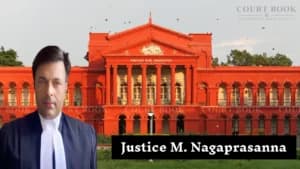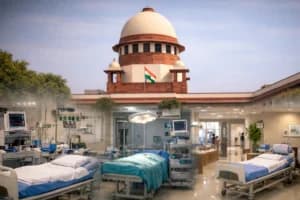The Bombay High Court has held that the legal representative of a dependent of a deceased passenger is entitled to compensation under the Railways Act, even if that dependent dies while an appeal is pending. The Court observed that the compensation amount forms part of the estate of the deceased dependent and does not abate on their death.
Justice N.J. Jamadar delivered this ruling while deciding an appeal filed by Smt. Sonal Vaibhav Sawant. Her father, Mahadev Krishna Tambe, had initially approached the Railway Claims Tribunal seeking compensation under Section 124-A of the Railways Act, 1989, after the death of his son, Amit Tambe, in an alleged train accident in 2011.
Read Also:-Bombay High Court Denies Bail in Serious POCSO Offence: Emphasizes Victim Protection Over Liberty
Mahadev claimed that his son, a 25-year-old bachelor, fell from a running train between Lower Parel and Mahalaxmi station while holding a valid season ticket. The Tribunal, however, rejected the claim on the ground that it was not established whether the incident qualified as an “untoward incident” under the Act. It doubted whether Amit had fallen from a running train despite having a valid ticket and identity card.
During the pendency of the appeal before the High Court, Mahadev passed away. His daughter Sonal, who was not herself a dependent under the Railways Act, sought to continue the proceedings as Mahadev’s legal representative.
Rejecting the Union of India’s objection on Sonal’s right to pursue the case, the Court held:
“Sonal, in her capacity as the legal representative of Mahadev, the deceased appellant, is entitled to prosecute the appeal and receive compensation which would have been paid to Mahadev as it partakes the character of the estate of Mahadev.”
The Court further found fault with the Tribunal’s reasoning, noting that Amit had been found with a valid season ticket and identity card, confirming his status as a bona fide passenger. It said the Tribunal had erred in rejecting the claim on speculative grounds without proper evidence, adding:
the nature of the liability of the railway administration, once the primary facts are established…, the distinction dependent upon the outcome of the proceeding before the Tribunal, pales in significance. If the claimant was of the class where he becomes dependent on account of the relationship, and was not required to further prove the actual dependency…, then the right to receive compensation crystalizes as of the date of death of the deceased passenger and the fact that the Tribunal unjustifiably rejected the claim, does not defeat such crystalized or vested right in the event the dependent/claimant dies after preferring an appeal.
The Court stressed that Section 124-A of the Railways Act operates on the principle of strict liability once it is established that a bona fide passenger dies in an “untoward incident.” This right vests on the date of death and survives to the estate of the dependent, meaning that a legal representative can continue to seek compensation if the dependent dies during proceedings.
Read Also:-Bombay High Court Restrains Use of ‘SHREE RAM BANDHU’ Mark in Trademark Dispute
The Court also highlighted that the injuries on the deceased's head and face were consistent with falling from a moving train and that no evidence had been produced to rule out an accidental fall. It rejected the Tribunal’s finding that the place where the body was discovered made it impossible that he fell from a train, calling that conclusion speculative.
Accordingly, the Court set aside the Tribunal's decision and directed the Union to pay ₹8,00,000 to Sonal.
Case Title: Smt. Sonal Vaibhav Sawant v. Union of India [First Appeal No. 50 of 2015]















